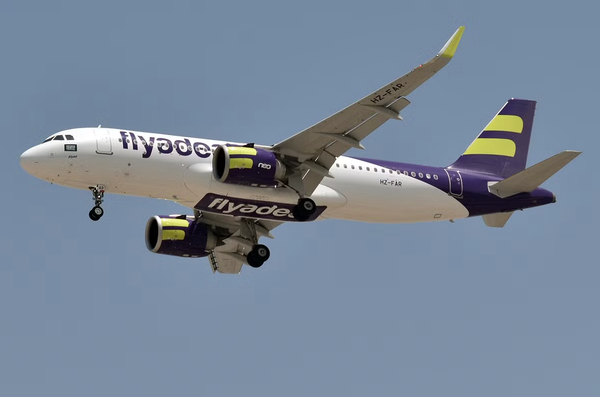On January 31, a Lufthansa Airbus A330-300, operating on flight LH440 from Frankfurt Airport (FRA) to George Bush Intercontinental Airport (IAH), experienced an engine malfunction. After being airborne for only two hours, the aircraft was forced to return to Frankfurt.

The Incident
The Plane is 11.8 years old and was delivered to Lufthansa in 2012. It has two Trent 700 engines and can hold up to 255 seats in a three-class configuration; registered under D-AIKQ, it had been flying for approximately two hours and was at a cruising altitude of roughly 34,000 feet when the pilots detected an issue on one of the Rolls-Royce Trent 700 engines.
For now, the details of the incident remain unclear. Still, reports suggest it caused an increased amount of noise and vibration within the cabin, to which the crew acted out of a precautionary measure and following standard procedures, shutting down the affected engine and initiating a descent to a lower altitude.
The aircraft diverted back to Frankfurt Airport(FRA), where it landed safely on runway 25C approximately three hours after departure; luckily, no injuries were reported among the passengers or crew, and emergency services were on standby upon arrival but ultimately were not required. Lufthansa subsequently canceled the flight and re-accommodated passengers on alternative flights.

Several passengers on the flight shared their experiences on social media platforms like Twitter and with news outlets. While some reported feeling alarmed by the sudden change in engine noise and vibration, others complimented the crew's professionalism and expressed relief at the safe landing. One passenger noted, "The captain kept us informed throughout the situation, and we felt confident in his abilities."
Cause and Investigation
The exact cause of the engine failure is still under investigation by Lufthansa and the German Federal Bureau of Aircraft Accident Investigation (BFU). The A330 that was involved has been grounded for further inspection and maintenance; as of right now, reports suggest the issue may have been related to the aircraft's Rolls-Royce Trent 700 engines, which have been the subject of scrutiny in recent years due to several incidents involving in-flight oil leaks and uncontained engine failures.
This incident has reignited concerns about the reliability of the Airbus A330, especially those equipped with Trent 700 engines, because back in 2017, an A330 operated by Air Transat experienced an uncontained engine failure shortly after takeoff from Montreal, Canada, which forced the aircraft to make an emergency landing at the initial airport.

This incident led to the temporary grounding of several A330s while Rolls-Royce addressed the issue. Lufthansa's safety record has also come under some scrutiny in recent months, as back in October 2023, a Lufthansa A320-200 experienced a right-hand engine failure shortly after takeoff from Frankfurt, forcing it to return to the airport. Several reports of medical emergencies and bird strikes on other Lufthansa flights have also been reported.
Looking Ahead
The investigation into the engine failure on the flight is ongoing, and what the BFU will find remains to be seen. However, this incident highlights the importance of continuing safety assessments and maintenance procedures for aging aircraft models and engines. Additionally, it underscores the need for clear and transparent communication from airlines during such events to maintain passenger confidence.
FAA Finalises Airworthiness Directive for GE90 Engines Following Powder Metal Contamination Discovery » Alaska Airlines' Record-Breaking Boeing Order To Launch New Europe and Asia Routes » 2025: Aviation Deaths are Down 27.3%, But Things Didn't Feel Safer »
Comments (0)
Add Your Comment
SHARE
TAGS
NEWS Lufthansa Airbus A330 AIrbus Safety Technical A330 Engine Failure Frankfurt FRA Houston IAH Texas Germany Airbus A330-300RECENTLY PUBLISHED
 First Airbus A321XLR Arrives in Delhi to Launch Landmark Athens Route
In a transformative moment for Indian aviation, IndiGo officially inducted its first Airbus A321XLR (Extra Long Range) aircraft today, January 7, 2026. The aircraft, bearing tail number VT-NLA, touched down at Indira Gandhi International Airport (DEL) following a delivery flight from Hamburg via Abu Dhabi.
ROUTES
READ MORE »
First Airbus A321XLR Arrives in Delhi to Launch Landmark Athens Route
In a transformative moment for Indian aviation, IndiGo officially inducted its first Airbus A321XLR (Extra Long Range) aircraft today, January 7, 2026. The aircraft, bearing tail number VT-NLA, touched down at Indira Gandhi International Airport (DEL) following a delivery flight from Hamburg via Abu Dhabi.
ROUTES
READ MORE »
 Saudi LCC Flyadeal Expands Network with New Medina Base
In a landmark move for Saudi Arabia’s aviation sector, flyadeal, the Kingdom’s leading low-cost carrier, has officially inaugurated its fourth operational base at Prince Mohammad bin Abdulaziz International Airport (MED) in Medina.
ROUTES
READ MORE »
Saudi LCC Flyadeal Expands Network with New Medina Base
In a landmark move for Saudi Arabia’s aviation sector, flyadeal, the Kingdom’s leading low-cost carrier, has officially inaugurated its fourth operational base at Prince Mohammad bin Abdulaziz International Airport (MED) in Medina.
ROUTES
READ MORE »
 LATAM Boeing 767 Immobilised in Atlanta After Catastrophic Eight-Tire Blowout
There is a fragile physics to the moment a 150-ton machine transitions from the grace of flight to the friction of the earth. On the evening of January 6, 2026, that transition turned violent for LATAM Airlines Peru flight LA2482.
NEWS
READ MORE »
LATAM Boeing 767 Immobilised in Atlanta After Catastrophic Eight-Tire Blowout
There is a fragile physics to the moment a 150-ton machine transitions from the grace of flight to the friction of the earth. On the evening of January 6, 2026, that transition turned violent for LATAM Airlines Peru flight LA2482.
NEWS
READ MORE »



